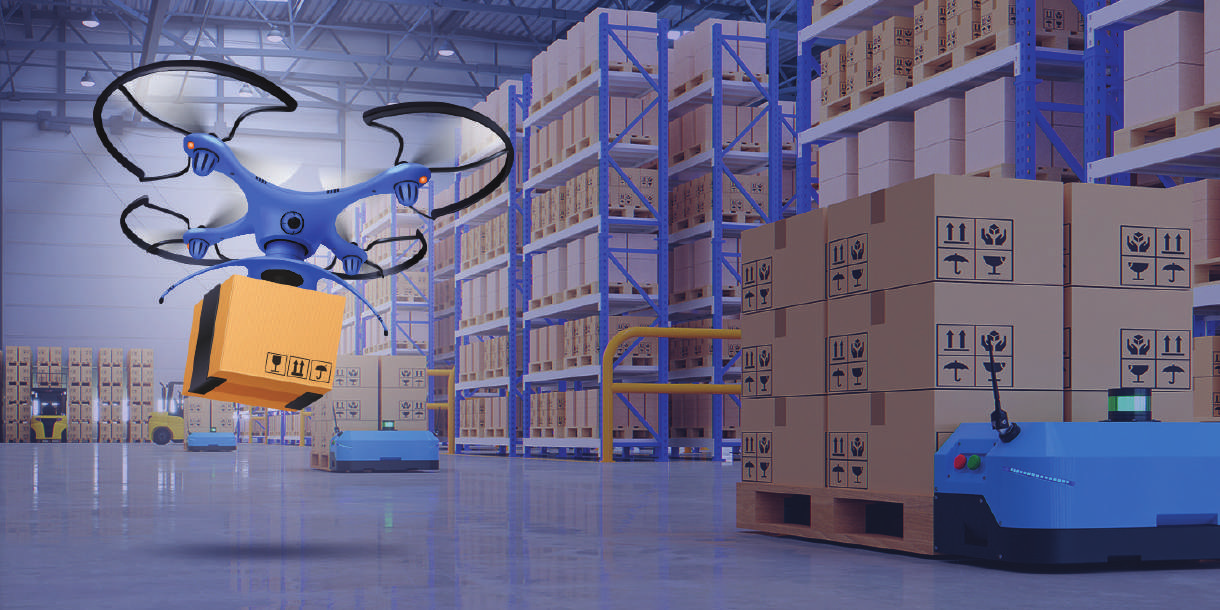Over the past decade, the impact of artificial intelligence (AI) on supply chain operations has been significant. AI has become an integral part of modern supply chains with the ability to enhance efficiency, reduce costs, and improve customer satisfaction. However, successful implementation requires targeted use cases, focused on critical business workflows, and robust data ingestion systems to ensure data quality and integrity.
Inventory Optimization and Shortage Management
AI has made significant strides in identifying and prioritizing activities related to inventory optimization and shortage management. AI enhances supply chain resilience and responsiveness by linking these activities to automated workflows. These advanced technologies break down decision-making silos between production planners, material buyers, and suppliers, promoting better collaboration and automating decisions based on accurate predictions. AI simplifies tasks for individuals working on the ground, resulting in successful applications such as automated inventory actions and confidence scoring.

Leveraging AI for Enhanced Inventory Optimization
Achieving optimal inventory management is a crucial goal for supply chain operations, and artificial intelligence (AI) plays a significant role in this endeavour. By establishing efficient order policies and determining target inventory sizing levels, AI enables the automatic prioritization of actions that reduce excess inventory while ensuring maximum production readiness. Several parameters, including lead time, order quantity, demand, procurement policy, and safety stock, guide the purchasing process.
Utilizing a “plan for every part” (PFEP) analytical approach, AI leverages historical data, future demand projections, and supplier performance to establish optimal inventory levels. Organizations can gain insights from past inventory shortages or overages by conducting statistical analyses of safety stock. This data-driven approach, combined with machine learning techniques, empowers AI to optimize inventory sizing in ways that surpass the capabilities of traditional tools and spreadsheets.
Unleashing the Power of AI: Confidence Scoring and Smart Recommendations
In supply chain operations, confidence scoring has emerged as a vital tool that evaluates procurement actions based on supplier on-time delivery, lead times, past recommendations, and other critical performance data. By assessing the probability of success for each action, confidence scoring enables teams to cut through the noise and prioritize critical actions with the greatest potential to improve operational performance.
AI has proven to be exceptionally successful in supply chains, particularly when it comes to generating intelligent recommendations. For instance, it can optimize working capital and accurately predict future shortages, driving positive outcomes in working capital management and on-time delivery performance within manufacturing. While existing enterprise systems focus on transactional handling and retrospective analysis, AI predicts future challenges and prescribes specific actions. By relieving individuals of decision-making burdens, AI allows them to dedicate their attention to more intricate issues requiring direct intervention. When AI recommendations are combined with machine learning-based confidence scoring, the path to automation becomes clear, yielding high success rates.

Quality Data: A Crucial Predictor of Success in Supply Chains
In the dynamic landscape of supply chain operations, the role of quality data cannot be understated. Leveraging big data and cloud computing technologies, companies can swiftly integrate with existing enterprise systems and process vast amounts of data efficiently. This empowers them to perform more accurate and sophisticated predictive, prescriptive, and collaborative analytics, leading to improved decision-making and waste reduction within the supply chain.
Building a Foundation of Trustworthy Data for Future Success
Manufacturing companies striving for better planning require comprehensive, structured data to make critical procurement decisions. AI, fueled by substantial historical data, aids in developing an understanding of future patterns, a foundational aspect often overlooked. By relying on trustworthy data accumulated over extended periods, organizations gain valuable insights into past performance and can predict actions that will drive future improvements.

AI Transforming the Supply Chain Landscape
With the exponential growth of complexity in the supply chain industry, decision-making and data management have become more rapid. AI technology emerges as a transformative force, enhancing operational efficiency, cost reduction, and customer satisfaction. Manufacturers are now focused on automating the 60% to 70% of work under predictive and prescriptive categories, harnessing the potential of advanced analytics, machine learning, and purpose-built workflows. Embracing these technologies, supply chain leaders can secure a competitive advantage and position themselves for success in the rapidly evolving industry